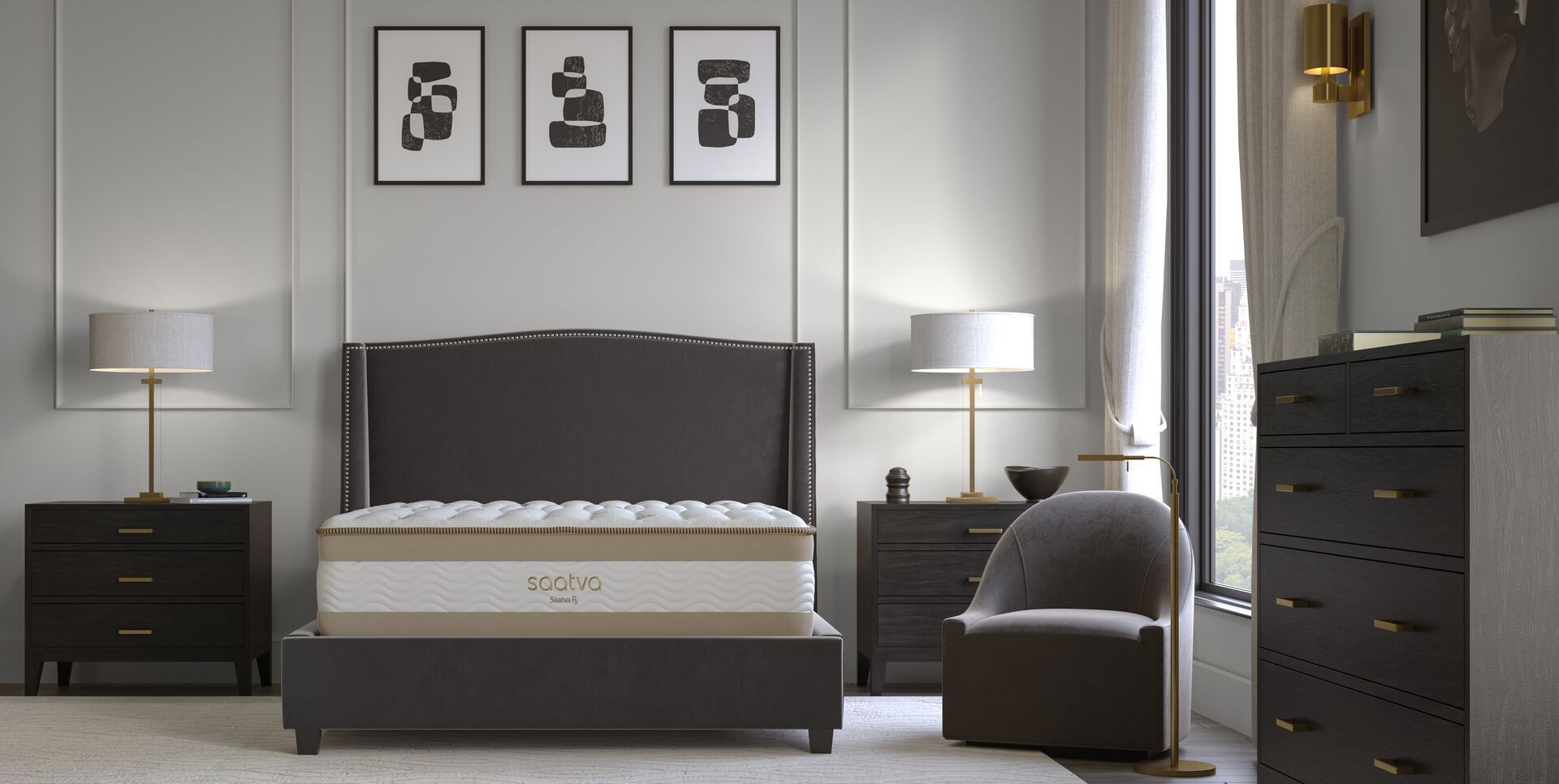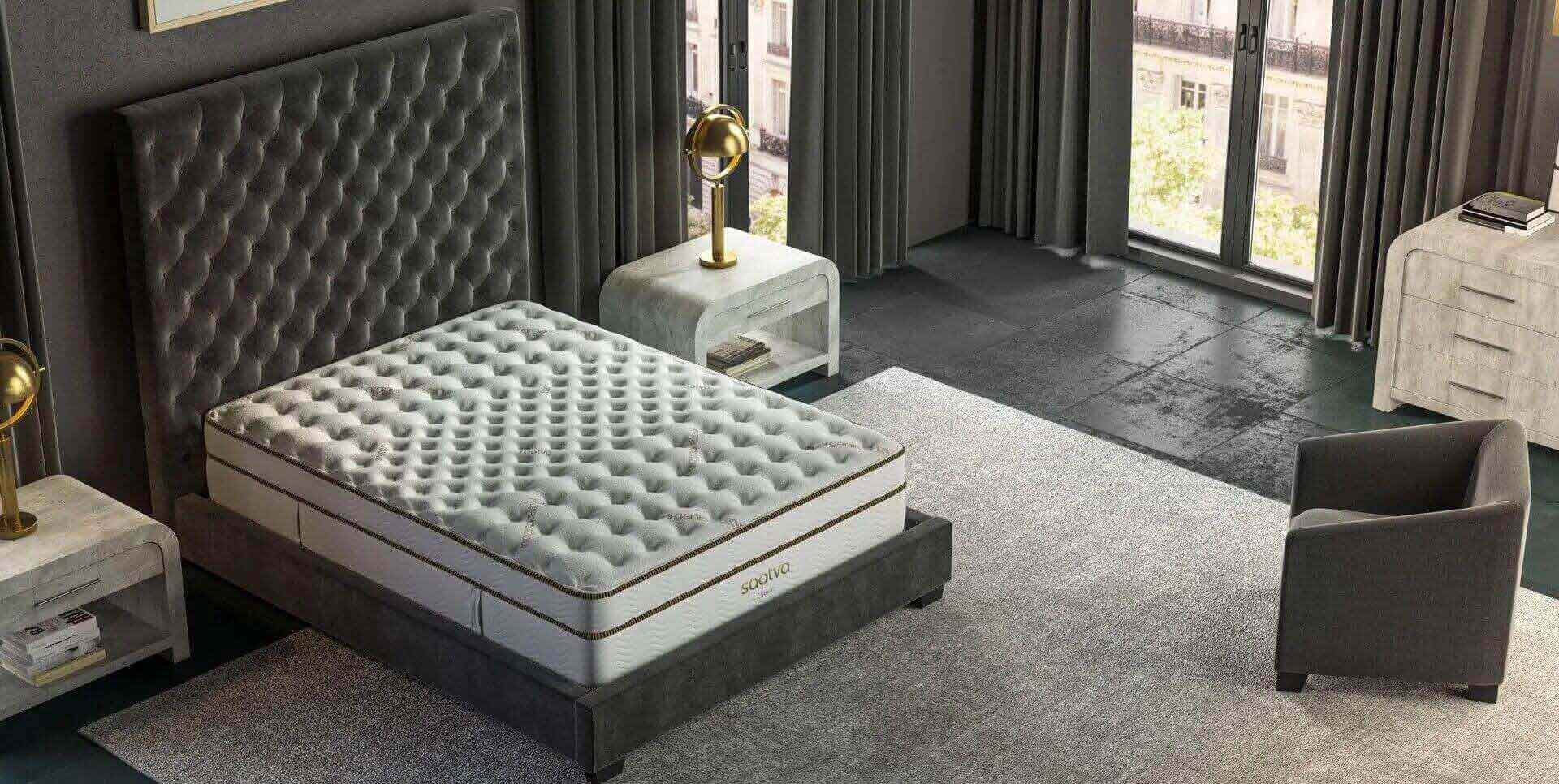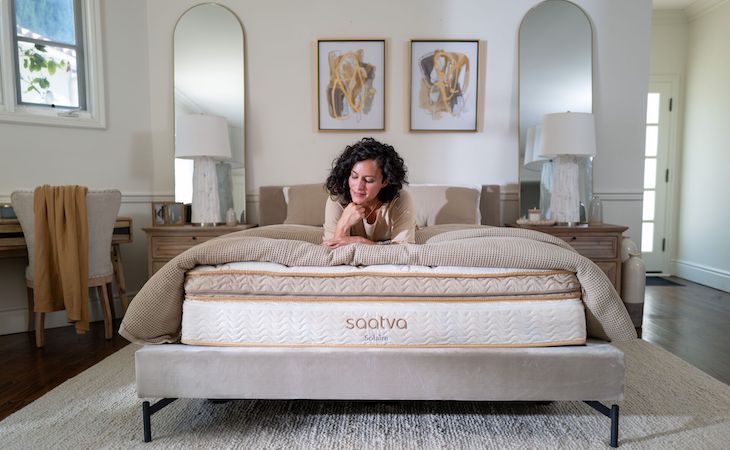If you have a health savings account (HSA), then you probably know it can be used to cover a variety of health-related expenses beyond your share of doctor or dentist bills. For example, if your doctor has prescribed a medication for seasonal allergies, you can likely use your HSA to pay for nasal sprays and rinses.
If you have a spinal condition, you may be wondering whether you can use your HSA funds to purchase a special mattress. This article will explore whether, and when, it’s possible to use your HSA to buy a mattress.
For what spinal conditions might a doctor recommend a special mattress?
There are spinal conditions that can seriously interfere with your sleep. Your doctor may prescribe a special mattress if your condition keeps you from getting the sleep you need.
Sciatica
Sciatica is a condition in which the sciatic nerve that runs from the lower spine down the back of each leg all the way to the foot becomes compressed, inflamed, or injured. People with sciatica describe intense pain, numbness, or weakness in the lower back and leg.
Sciatic pain can be worse at night when lying in a horizontal position for an extended period of time. A mattress that doesn’t properly support your low back could exacerbate sciatica.
Scoliosis
Scoliosis, a condition in which the spine curves sideways, often begins during the growth spurt before puberty. It’s commonly associated with growth and development before one reaches skeletal maturity.
It seems to have a genetic component and is more common in females. If scoliosis advances, it can result in back pain and even affect internal organs.
Arthritis
Arthritis is a catch-all term for about a hundred different joint conditions. The most common one is osteoarthritis, in which cartilage between bones breaks down and joints grind against each other and become inflamed. Arthritis is more than the occasional crick.
Sufferers often describe it as an ongoing dull ache, burning, or grinding sensation, usually accompanied by swelling and stiffness. It causes inflammation in the joint and throughout the body, which is linked to a lack of sleep.
Herniated disc
Still another common, sleep-disrupting spinal condition is a herniated disc. This injury can occur in any part of the spine when the material inside the nucleus of the disc pushes through a crack in the outer part of the disc called the annulus. The herniated material can cause a localized inflammatory reaction that irritates the surrounding nerves, or it may directly impinge on those nerves.
A herniated disc becomes more painful at night because, when you’re lying down, your spinal disc becomes larger or swollen because of a process called “imbibition.” This is a result of the disc restoring hydration by sucking up surrounding fluid, which puts more pressure on the nerve roots.
Other medical conditions
Chiropractor Chris Tomshack, CEO of HealthSource Chiropractic, notes that other medical conditions for which a chiropractor might recommend a special mattress include shoulder or rotator cuff tears, labrum tears, and sacroiliac sprains and strains.
What special features should someone with a spinal condition look for in a mattress?
Alex Tauberg, chiropractor and owner of Tauberg Chiropractic & Rehabilitation in Pittsburgh, says when dealing with sciatica, it’s best to find a mattress that provides good support.
“A mattress that provides good support for the back allows an individual to move more freely at night,” he explains. “They are able to move into positions with much more ease as they don’t have use of their own muscles as much to support the back.”
Look for a mattress with added lumbar support in the center third. This extra support depends on the type of mattress you choose, but denser foams in the center third of the mattress or an area of reinforced springs are typical methods of lumbar zone enhancement.
Tauberg adds that a firm mattress is often, though not always, the best choice for sciatica. Some studies show that a medium-firm mattress is best for those with sciatica. A mattress that’s too soft will cause your spine to bow unnaturally, causing more pain.
Although no mattress can cure scoliosis, one that offers pressure relief and provides proper spinal support can help alleviate some of the pain. Innerspring mattresses are a fine choice if you have scoliosis, though you may want to check out other, more advanced mattress types that may address your sleep needs.
Memory foam mattresses are often recommended to people with scoliosis because of their pressure-relieving abilities. Bear in mind that some memory foam mattresses are too soft, which can cause you to sink into the bed and cause more pain—so it’s best to choose one that’s on the firmer side if you have scoliosis.
A latex mattress conforms to your body like memory foam, but it’s responsive and bouncy like an innerspring mattress. It adjusts to your body’s curves so you don’t just sink beneath your weight the way some memory foam mattresses do, making it ideal for back pain.
A hybrid mattress—typically a cross between an innerspring and some sort of foam—will have thicker upper layers of foam than a traditional innerspring, providing additional pressure relief for your back. Still another option is an adjustable firmness mattress, which can be inflated or deflated to achieve a precise level of comfort and increased lumbar support.
Daniel Smith, MD, an orthopedic surgeon at Mount Sinai West in New York City, says choosing a pressure-relieving mattress or mattress pad like those made of memory foam or latex can reduce pressure on sensitive hip and shoulder joints, especially for side sleepers.
No one type of mattress is inherently better than another for a herniated disc. But you want to ensure your back is being protected in bed, so look for a mattress with added lumbar support in the center third.
How can a mattress help alleviate symptoms related to these conditions?
The mattress you choose can help alleviate the pain and discomfort that comes with any of these spinal conditions. The most important thing to consider is whether the mattress provides the support, in the right areas of the mattress, that you need for your particular condition.
Can I buy a mattress with my HSA if I have a spinal condition?
In most cases, the answer is no. Per the HSA Store: “Mattresses are not eligible for reimbursement with a flexible spending account (FSA), health savings account (HSA), health reimbursement arrangement (HRA), dependent care flexible spending account (DCFSA) or a limited-purpose flexible spending account (LPFSA).”
You can only use your HSA to buy a specially constructed mattress if its components and construction costs exceed those of a standard mattress for general health.
According to ProBenefits, IRS regulations state that if a doctor prescribes the use of a special type of mattress to treat a specific medical condition (such as an arthritic condition), then the expense could be reimbursable. You’ll need the prescription from your doctor as documentation to support the expense.
However, “The IRS does impose certain restrictions on such reimbursement,” notes ProBenefits. “For instance, the IRS limits the amount of reimbursement to the amount that the special mattress costs over and above a regular mattress.”
What’s more, the reimbursement is limited solely to the person with the medical condition. So if you share a bed with a partner, only half of the cost would be reimbursable, explains ProBenefits.
Why should you invest in a special mattress if you have a spinal condition?
Even if you can’t use your HSA funds for a mattress, buying one specifically designed to help alleviate the pain associated with your condition can be a worthy investment.
“Investing in medical care to alleviate a spinal condition without ensuring that proper support is maintained during sleep will cost more in the long run,” says Tomshack. “The condition will keep recurring, creating even higher medical expenditures.”
He adds that, since we spend one-third of our lives on a mattress, it makes far better sense to be on one “in a well-supported and healing-conducive environment.” In other words, he says, “Make sure that you have a mattress that provides the correct level of support for your unique sleeping needs.”
Beyond choosing the right mattress, how can you sleep better with a spinal condition?
Tomshack offers these tips to help people with sciatica, scoliosis, or other spinal conditions alleviate pain and get more comfortable sleep:
- Seek appropriate medical care if the condition warrants that level of intervention. “Quite possibly the condition can be eliminated or greatly reduced,” says Tomshack.
- Use rehab exercise to strengthen and stabilize the surrounding musculature, “which can reduce or eliminate much or all of the pain,” Tomshack says.
- Initiate a regular, non-marathon, and non-Olympic lifting exercise program. “Pilates is a fantastic choice,” Tamshack says.
- Improve your sleep quality, which is critical to proper healing.
Besides a good mattress, Tomshack says these five factors also can improve sleep quality:
- Go to bed and get up at the same times every day to maintain a regular sleep cycle.
- Keep your bedroom dark, cool, and quiet.
- Avoid electronic devices one hour before bedtime.
- Exercise, but not immediately before bedtime.
- Relax with a warm bath, by reading, or listening to calm music in a dimly lit environment.
FAQs
Can a mattress be a medical expense?
Only in a very limited circumstance. A specially constructed mattress can be considered a medical expense for which you can use HSA funds to pay for it—but only if it costs significantly more than a regular mattress and you have a doctor’s prescription to support the expense. In this circumstance, only the amount that the special mattress exceeds the regular mattress would be considered reimbursable.
Find the best mattress for your spinal condition at Saatva
Saatva offers a mattress specifically designed for people with chronic back and joint conditions.

The first luxury mattress specially designed for sleepers with chronic back & joint conditions
is specially designed to give maximum support and pressure relief that can help alleviate discomfort associated with such serious and chronic back and joint conditions as sciatica, scoliosis, arthritis, or herniated disc. (For normal aches and pains, we recommended our bestselling

America’s best-selling online luxury innerspring
, available in three comfort options.)*1
The Saatva Rx has a unique Therapeutic Support Core that automatically adjusts to your body’s curves and movements, virtually eliminating pressure points for better circulation and more restorative sleep. What’s more, its patented Lumbar Zone® quilting and gel-infused memory foam help relieve back pain by keeping your spine in healthy alignment.
Like all Saatva mattresses, the Saatva Rx comes with a 365-night home trial and lifetime warranty. You can also take our mattress quiz to determine which mattress is right for you.
The bottom line
In order to use your HSA funds on a special mattress for your spinal condition, the cost needs to exceed that of a regular mattress and you need to have a doctor’s prescription to support the expense. Speak to your medical team and insurance company to determine your eligibility.
If you have a spinal condition, investing in a special mattress (regardless of whether you can use your HSA toward the purchase) can be a good idea as it can help alleviate discomfort during sleep.
1 The Site’s content is not intended to diagnose any condition, to prescribe any course of treatment, or to be a substitute for professional medical advice, diagnosis, or treatment.




